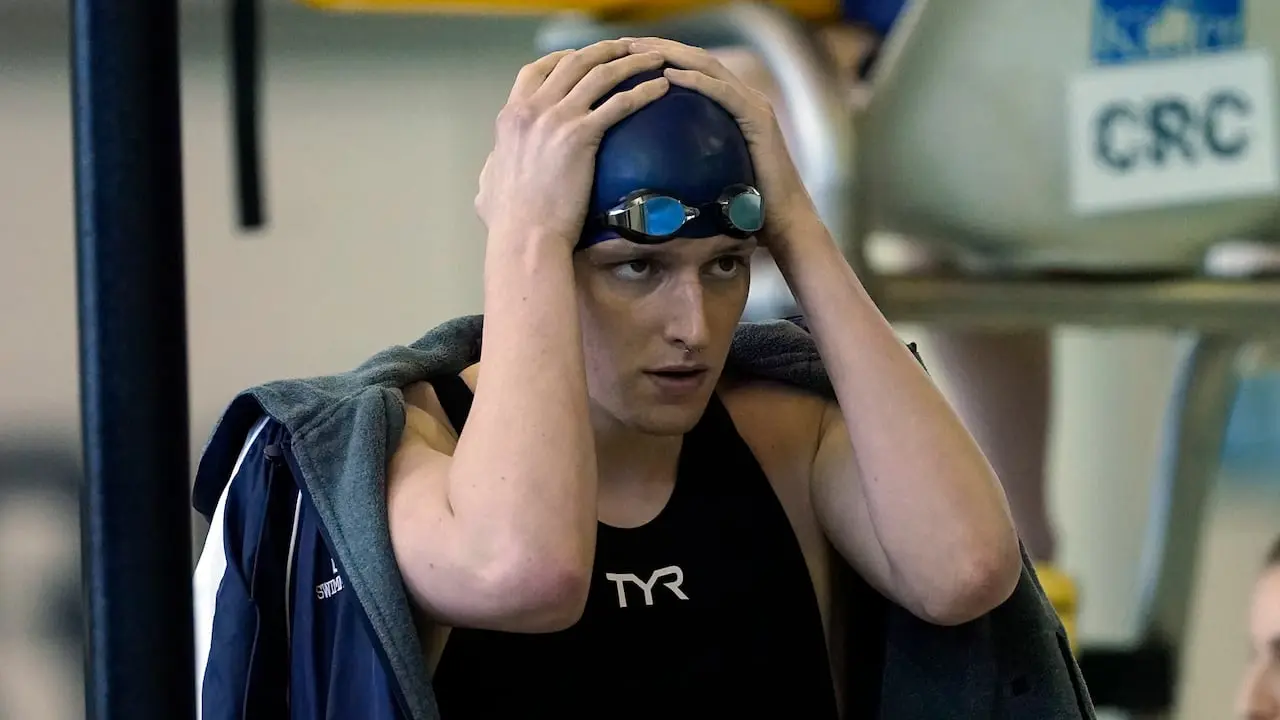Swimmer Lia Thomas has become one of the most talked-about athletes in recent years. Her journey through the competitive swimming world has been both inspiring and controversial, capturing the attention of fans, media, and sporting authorities alike.

Born with a natural talent for swimming, Lia trained from a young age. Her dedication and relentless effort allowed her to progress through the ranks quickly. Friends and coaches often described her as disciplined, determined, and exceptionally focused on her goals.

Transitioning in her early twenties, Lia faced both personal and professional challenges. She had to navigate the complexities of gender identity while maintaining rigorous training schedules and competing at the highest levels. Her resilience became a hallmark of her story.

Despite facing scrutiny, she continued to excel in swimming. Her performances in national competitions drew attention, earning her victories and recognition. Lia’s skill in the pool was undeniable, reflecting years of commitment and physical conditioning.
Media coverage intensified as her successes grew. Some outlets celebrated her achievements, highlighting her dedication, while others questioned her eligibility, sparking widespread debate across social media and sports communities.
Lia consistently defended her right to compete as a woman. She emphasized that her accomplishments came from hard work, discipline, and perseverance. Her public statements reflected both confidence and vulnerability, resonating with supporters worldwide.
Criticism came from various corners, including fellow athletes, commentators, and fans. Some argued that her participation was unfair, while others highlighted the importance of inclusivity and respect for gender identity in sports.
Despite this, Lia remained focused on her training. Early mornings, grueling practice sessions, and strict routines defined her life. Her determination to improve personally and professionally never wavered, even under immense pressure.
Her victories in major competitions were celebrated, though not without controversy. Each win was scrutinized, sometimes overshadowed by debates about fairness rather than her athletic skill or effort. This created an unusual dynamic in the sporting world.
Supporters argued that her presence encouraged acceptance and understanding. They pointed out that success in sports is not solely determined by biology, but also by talent, discipline, and perseverance. Lia’s story inspired many who faced similar challenges.
Lia often shared her experiences publicly, hoping to educate and raise awareness. Interviews and social media posts allowed her to connect with fans and advocate for transgender athletes. Her voice became central to ongoing discussions about equality in sports.
Her journey was not just about competition. It was a personal narrative of identity, courage, and self-acceptance. Lia’s openness about her struggles inspired dialogues in schools, sports clubs, and professional organizations around the world.
The World Swimming Federation eventually intervened. They issued a ruling that barred Lia from participating in the 2028 Olympics. Additionally, some of her previous titles were revoked, stirring debates about fairness, ethics, and policy in international sports.
This decision generated mixed reactions. Some celebrated the ruling, claiming it preserved competitive integrity. Others criticized it as discriminatory, arguing that it undermined years of hard work and personal sacrifice by an athlete who had trained diligently.
Despite setbacks, Lia remained resilient. She continued training and competing where possible, refusing to let controversy define her entire career. Her perseverance became a symbol for many athletes facing adversity or discrimination.
The conversation around her career highlighted broader societal issues. Gender identity, inclusivity, and fairness in sports emerged as central themes, prompting discussions not only among athletes but also policymakers, educators, and the general public.
Lia’s story illustrated the complex intersection of identity and professional sports. While her opponents focused on regulations, supporters highlighted her humanity and dedication, emphasizing the importance of empathy alongside rules and procedures.
Critics often questioned whether current regulations are adequate. They debated whether athletic organizations had policies that fairly addressed the participation of transgender athletes while maintaining equitable competition. Lia’s situation became a case study for future policy-making.
For Lia, personal growth remained as important as professional achievement. She spoke openly about mental health, resilience, and the emotional toll of public scrutiny. Her story underscored the human side of sports beyond medals and records.
Fans and fellow athletes showed varied support. Some sent messages of encouragement, celebrating her courage. Others voiced disagreement or frustration, demonstrating how polarized public opinion can be when identity and competitive sports intersect.
Throughout the controversy, Lia emphasized that her victories were hers alone. She rejected claims that her success was unfair or undeserved, reiterating that it stemmed from years of hard work, discipline, and unwavering dedication to swimming.
Her experience sparked debates across the world. Conferences, articles, and social media discussions dissected the implications for sports, ethics, and society. Lia’s journey became more than personal—it became a catalyst for global reflection on inclusivity.
Despite the challenges, Lia maintained a sense of purpose. She focused on advocacy, mentoring young athletes, and promoting understanding about transgender experiences. Her influence extended beyond the pool, impacting lives in multiple communities.
Many experts praised her courage and resilience. They highlighted that navigating controversy while performing at elite levels requires extraordinary mental and emotional strength, qualities that Lia consistently demonstrated throughout her career.
Lia Thomas’s journey remains ongoing. Her story continues to inspire debates about fairness, identity, and human potential. Regardless of the decisions made by authorities, her dedication and courage have left a lasting mark on the world of sports.
Ultimately, her narrative is about perseverance, identity, and advocacy. Lia’s life exemplifies how personal determination can challenge societal norms and spark conversations that reach far beyond the boundaries of any swimming pool.






